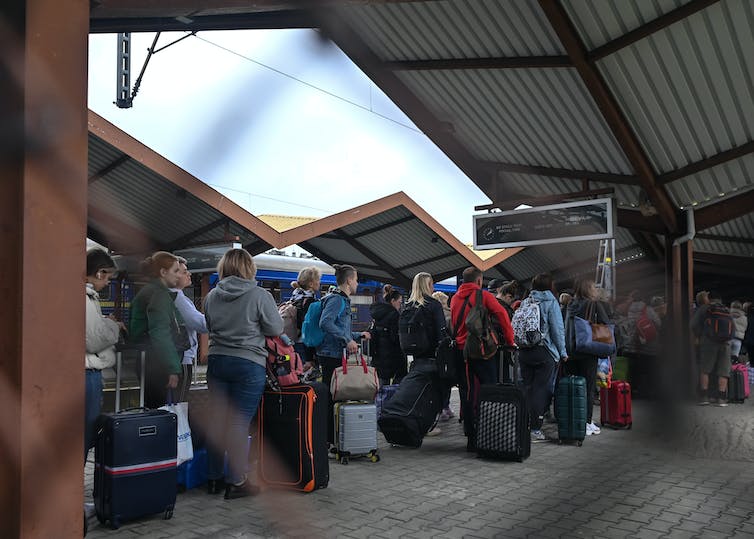The Russian invasion of Ukraine in February 2022 has done a lot of damage to the Ukrainian scientific system. The ongoing war has damaged physical infrastructure, thousands of Ukrainian scientists have fled their country to seek safety abroad, and the researchers who stayed have experienced significant disruptions to their work.
We are three economists who study the benefits of science and knowledge production, and a medical researcher originally from Ukraine. Two of us are also co-founders of #ScienceForUkraine, a grassroots initiative that helps support Ukrainian scientists and students.
Damage to a country’s science system – like what is happening in Ukraine – can harm economic growth for decades. However, research shows that local and international policymakers can minimize this harm by providing direct funding to researchers, creating remote research positions and offering research opportunities abroad to Ukrainian scientists.

Around 10% of Ukraine’s scientists have been among the millions of people who fled the country due to the war.
Artur Widak/Anadolu Agency via Getty Images
How war harms Ukrainian science
The most visible impact on Ukrainian science is the destruction of universities or disruption of their services. According to a report by the Ukrainian Ministry of Science and Education, 22% of research and higher education institutions have been physically damaged in some way. This includes five of the country’s top 20 institutions and 20 of the top 100.
Funding cuts are pervasive, too. The Ukrainian government has announced a 20% decrease in funding for academic scholarships and national research grants since the start of the war. Researchers have also faced significant decreases in salaries.
Additionally, the Ukrainian Ministry of Science and Education estimates that 10% of the roughly 60,000 Ukrainian scientists have fled the country since the start of the war. In a survey conducted by our nonprofit, we found that nearly all of the researchers who left are female, as men aged 18 to 60 are generally not allowed to leave Ukraine due to martial law. This flow of scientists to neighboring countries has given rise to fears of a brain drain.
Some researchers have started to return to Ukraine. Encouragingly, roughly one-third of researchers currently abroad say they plan to go back as soon as the war ends, with another third considering returning in the future. In our survey, we found that more than half of researchers abroad remain on the payroll of their Ukrainian institution and still teach courses to Ukrainian students using remote methods or temporary visits.
One measurable result of all of these disruptions is that the number of research papers published by Ukrainian scientists in 2022 was down by 10% compared to 2021.
The consequences of scientific loss
Scientists and the ideas they produce are important for sustained economic growth, and university research is a…



